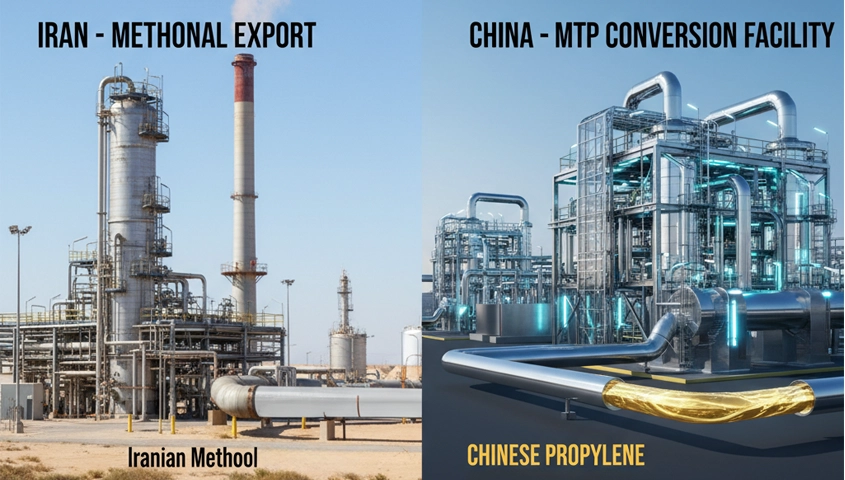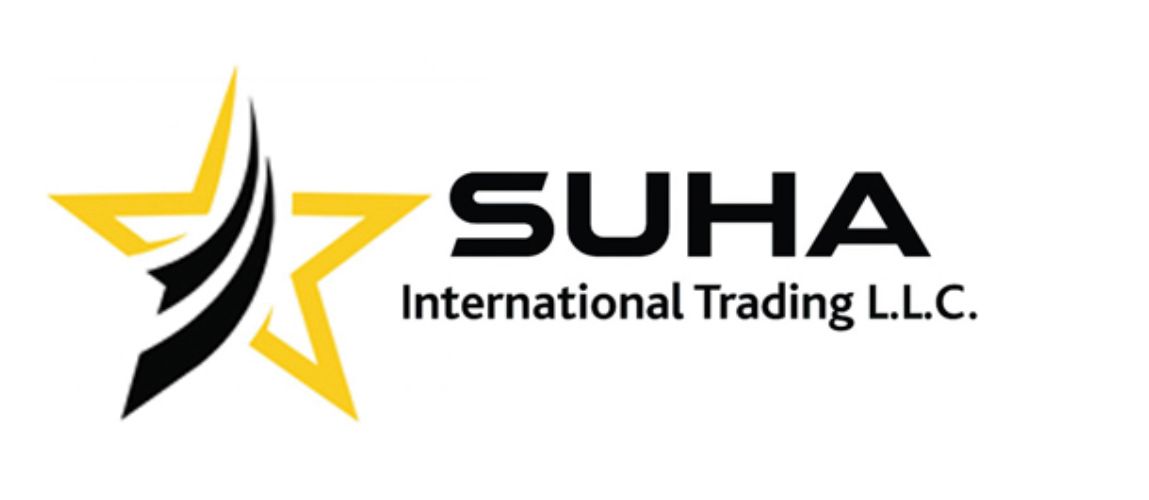China Turns Iran’s Methanol into Petrochemical Gold

Iran’s Methanol Dominance: Built on Natural Gas
Iran is consistently ranked among the world’s top global methanol producers. This capacity is primarily driven by its vast, cost-effective reserves of natural gas (methane), which is the essential raw material. Leveraging massive plants, particularly in the Persian Gulf region like the Assaluyeh Special Economic Zone, Iran can produce methanol at globally competitive prices. However, methanol is a basic commodity chemical; while essential for products like formaldehyde and acetic acid, it offers significantly narrower profit margins compared to its derivatives.
In contrast, propylene is considered the “caviar of the petrochemical industry.” It is the second most important building block chemical (after ethylene), crucial for manufacturing polypropylene plastics, synthetic fibers, packaging materials, and automotive components. The vast difference in market value between basic methanol and finished propylene highlights the lost revenue for the exporting nation.
China’s MTP Strategy: Maximizing Value from Cheap Feedstock
China has strategically invested billions in capital-intensive Methanol-to-Propylene (MTP) and Propane Dehydrogenation (PDH) plants, fundamentally reshaping its petrochemical reliance. The MTP process allows China to produce propylene without the traditional reliance on crude oil cracking, making it a powerful tool for industrial independence and self-sufficiency.
According to industry data, nearly 40% of China’s imported methanol can be sourced from Iran, making the Iranian supply stream a key input for its MTP operations. By building and scaling these facilities, China now meets approximately 96% of its domestic propylene demand, significantly cutting previous import levels. This strategic advantage not only secures China’s industrial supply but also positions it as a major global exporter of high-value petrochemical products.
The Price of Constraints: Sanctions and Discounted Exports
A major factor fueling this disparity is the ongoing burden of international sanctions against Iran. These sanctions heavily restrict Iran’s access to global financial mechanisms (like the SWIFT banking system) and reliable international shipping and insurance.
This constrained trading environment forces Iranian exporters to transact methanol at substantial discounts, often well below global benchmark prices and frequently through opaque trade mechanisms or barter deals. Chinese refiners and chemical manufacturers are uniquely positioned to capitalize on this situation, securing low-cost feedstock that maximizes the profitability of their MTP process. The irony is compounded when finished, high-value propylene is then re-exported globally, and sometimes even sold back to the Iranian market, underscoring the severe opportunity cost.
A Strategic Imperative: Investing in the Downstream Value Chain
Analysts concur that the solution for Iran lies in a decisive shift toward downstream integration. Iran possesses all the necessary ingredients to capture the lost value:
- Abundant Feedstock: Second-largest natural gas reserves globally.
- Existing Infrastructure: Established methanol production hubs.
- Cost Advantage: The ability to bypass market prices for its raw material.
By investing in domestic MTP units, Iran can transform its own methanol into propylene. This shift would require significant foreign investment and technological know-how but would offer a monumental return on investment (ROI). Moving up the petrochemical value chain from a commodity seller (methanol) to a high-margin product manufacturer (propylene and its derivatives) would strengthen industrial independence, diversify export earnings, and create substantial, high-skill employment opportunities.
Conclusion: A Crossroads for Iran’s Petrochemical Future
Iran’s petrochemical sector now stands at a pivotal crossroads. The long-term economic prosperity depends on a strategic choice: continue the status quo of exporting discounted, low-value Iran methanol exports and forfeit billions in potential revenue, or aggressively prioritize MTP investments and downstream integration. Leveraging its natural gas advantage to produce high-margin derivatives like propylene is the definitive path to transforming its petrochemical sector from a commodity supplier into a global value-chain player.

